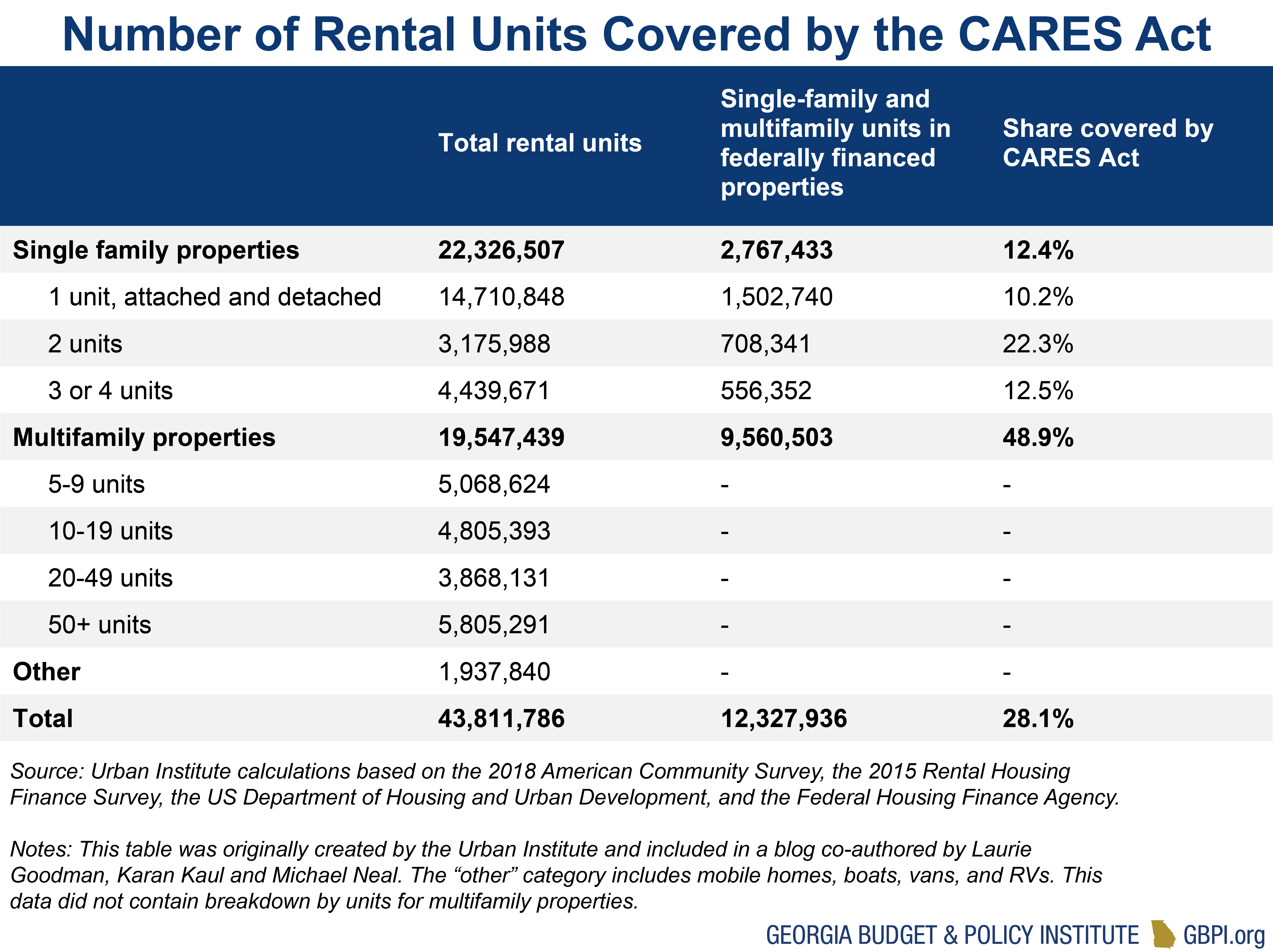An extensive body of research shows that poor housing conditions and housing instability are associated with worse health outcomes. An overview of this research in Health Affairs outlines how housing impacts health in several ways, such as how unaffordable housing leaves people with less money to afford other needs like food and health care and how providing people with stable housing can decrease health care costs and improve treatment outcomes.
With 95 percent of the nation under stay-at-home orders to slow the spread of COVID-19, the relationship between housing and health is even more prominent. Meanwhile, nearly one-third of renters across the nation struggled to pay their rent last month. Ensuring people have stable and safe housing during the COVID-19 public health emergency is critical to controlling the spread of infection. Supporting housing stability allows people to adhere to social distancing guidance, reduces financial burden during this time of economic instability, and, for families with children, provides support for emotional and mental health and a means to participate in virtual educational programs as schools remain shuttered for the remainder of the academic year.
There are several actions Georgia state policymakers and local leaders can take to promote housing stability and assist people experiencing homelessness. Housing and legal scholars at Emory University, Georgia State University and Georgia Institute of Technology outlined some key recommendations for Georgia to address housing and health during this emergency such as suspending evictions, foreclosures and utility shutoffs; financial assistance to people losing wages and operational support for homeless shelters. For example, their recommendation to temporarily ban eviction and foreclosure activities as more people find themselves unable to pay their rent or mortgage during this crisis would have far-reaching impact. This would include not only banning evictions procedures, but also eviction filings—which can have long-lasting negative effects on future housing and other opportunities.
At least 21 states have acted so far to suspend eviction cases and enforcement. These policy actions show a greater understanding of the relationship between housing and health. Over 60 percent of states with statewide moratoriums on eviction during this pandemic explicitly cite the effects of housing stability on public health.
The Coronavirus Aid, Relief and Economic Security Act (CARES Act), signed into law on March 25, includes a temporary moratorium on eviction filings for 120 days—but only for rental properties that are financed by federally-backed mortgages or receive federal assistance. The Act also prohibits foreclosures for 60 days on federally-backed mortgages. While this is an important step, these protections do not cover all properties. In fact, the CARES Act moratoria only cover about 28 percent of rental units nationwide. Therefore it is critically important that the state take additional steps to protect the housing of Georgians.
State and local governments in Georgia should expand on this federal action by issuing eviction and foreclosure moratoria in their jurisdictions. Some municipalities have already taken action; for example, City of Atlanta Mayor Keisha Lance Bottoms issued an executive order on March 17 calling on affordable housing partners to put in place a 60-day moratorium on residential evictions and filings. The Georgia Supreme Court also issued guidance for courts to prioritize essential functions for 30 days (a period subsequently extended until May 13), but it does not specifically mention whether evictions should proceed. There is currently not a statewide moratorium on evictions and foreclosures in Georgia.
Georgia Appleseed and the Atlanta Volunteer Lawyers Foundation delivered a letter to Governor Kemp on April 2 urging him to take executive action to suspend evictions and foreclosures. The Georgia Budget and Policy Institute was proud to join over one hundred other organizations and elected officials in signing this letter. We continue to monitor progress on this and other housing policies that can protect public health.


